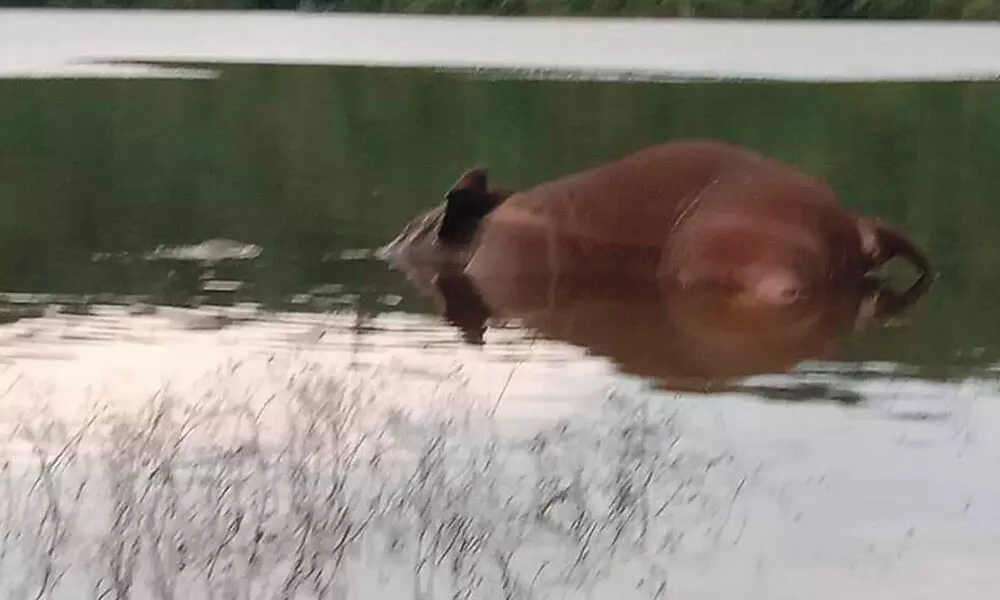Karnataka: Power lines continue to kill pachyderms

Image of an elephant electrocuted at Anchigulli village
With the recent electrocution of elephants in the State, the questions about striking of balance between the infrastructure and sustainable development have come to the fore
Bengaluru: With the recent electrocution of elephants in the State, the questions about striking of balance between the infrastructure and sustainable development have come to the fore. Last week, two elephants were electrocuted in Anchigulli village, adjoining Kodihalli range of the Bannerghatta National Park.
One of the reasons said was that a high-tension wire runs alongside the dam. Former Principal Chief Conservator of Forests (Head of Forest Force) Karnataka, B K Singh said that the electrocution of elephants was a heinous crime and investigation of FIR in such cases required coordination of Forest, Electricity and Police departments.
"The government has issued advisories and all electrocution cases are booked and investigated by the Police Department. When Forest officers come across any electrocution case, they visit the spot and hardly find any evidence to collect for police investigation. The wires are removed and one cannot even find which agriculture field was power-fenced and who is the owner of the field," he said.
Offering his insight, he said that in 75 % cases, culprits are not arrested. "I do not remember any case in the last one decade where anyone is prosecuted in elephant electrocution cases. The investigations into these cases therefore reach nowhere and culprits get emboldened to try the trick again and again," Singh added.
Wildlife experts allude that the increasing human habitation, expansion of agriculture and mining, development of linear infrastructures have resulted in loss of elephants' habitats and corridors.
Regeneration of palatable species has been impacted and forest floors are covered with invasive species like eupatorium, lantana and parthenium. The cropping patterns on the edge of the forests are also changed and high value crops like banana, paddy, areca nut and palatable tree species for shades in coffee estates attract elephants. The damages are not adequately and timely compensated by the Forest Department which leads to unrest among the victims.
"Farmers, who become desperate to protect their crops, illegally draw power from transmission lines passing through the area and power fence the field for the night.
Elephants straying out in human areas and moving through agricultural fields come in contact with live wires and get electrocuted. Farmers also resort to providing power connection to trap ungulates like deer and sambhar for meat and quite often it leads to electrocution of wild elephants.
Another way of electrocution of elephants is that they come in contact with sagging 11 KV transmission lines even while moving in forests and get electrocuted," Singh explained.
Founder of Project Vruskha, Vijay Nishanth who has been fighting against the illegalities around the Bannerghatta National Park stated that in order to avoid such conflicts, "We have always maintained that the eco-sensitive zone (ESZ) should not be reduced.
The elephant corridor should be protected. Human settlements are now entering the lung spaces of the State," he stated.










